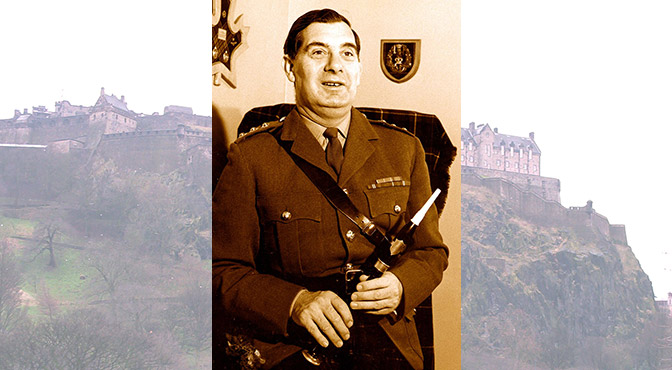
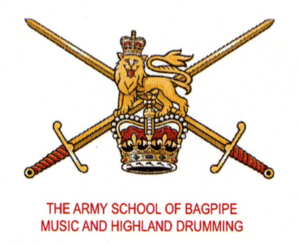 P/M Ross McCrindle of the Scots Guards and Senior Pipe Major in the British Army has sent this about Saturday’s important professional piping contest at the Army School in Edinburgh:
P/M Ross McCrindle of the Scots Guards and Senior Pipe Major in the British Army has sent this about Saturday’s important professional piping contest at the Army School in Edinburgh:
‘The Army School of Bagpipe Music and Highland Drumming will again be hosting the Captain John A MacLellan Piping Championships on Saturday the 7thof October. Held at Inchdrewer House within Redford Barracks, this event features some of the best solo pipers in the country, with separate Piobaireachd and Light Music events in P, A, B and C grades and a Hornpipe and Jig contest open to all competitors. In this, the fifth year of the championships, a strong entry has been received in each grade and spectators are very welcome. Food and beverages will be available throughout the day, so please join us at the home of Army Piping and Drumming for what promises to be a great day of competitive piping.’
This is a superb day’s piping as anyone who had attended this competition will attest, writes the Editor. Please support it if you can. Everything is done very efficiently and to time. Things seldom run over and the presentation of prizes comes around teatime as scheduled. The championship is well worthy of the good captain’s name.
[wds id=”6″]
As most readers will know, Captain John was one of the giants of post war solo piping not only for his considerable success at the senior events at Oban and Inverness but also through his compositions, his work for the Piobaireachd Society and the firm footing, the permanence, he gave to the Army School, in his day located in Edinburgh Castle.
Though very much the junior partner in the relationship, I got to know John very well and had the pleasure of playing some of his piobaireachd one of which I broadcast on BBC Radio Scotland in 1989. The tune was ‘A Lullaby for Iain’. Afterwards John sent me this letter:

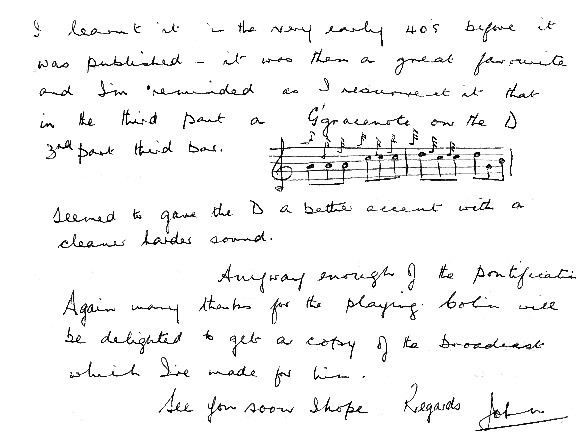 It reads: Dear Rab, Before time slips past too far, I’d like you to have this note to express my thanks to you for selecting and playing so nicely ‘A Lullaby for Iain’. I thought it was a grand effort on a pipe that was melodious – the absence of that high pitched, strident sound we get (thankfully diminishing) gave the recital a harmonious sound.
It reads: Dear Rab, Before time slips past too far, I’d like you to have this note to express my thanks to you for selecting and playing so nicely ‘A Lullaby for Iain’. I thought it was a grand effort on a pipe that was melodious – the absence of that high pitched, strident sound we get (thankfully diminishing) gave the recital a harmonious sound.
I liked hearing Donald MacLean. I learnt it in the very early 40s before it was published – it was then a great favourite and I’m reminded as I resurrect it that in the third part a G’ gracenote on the D seemed to give the D a better accent with a cleaner, harder sound.
Anyway enough of the pontificating. Again very many thanks for the playing. Colin will be delighted to get a copy of the broadcast which I made for him. See you soon I hope, Regards, John.
John makes an interesting point about the G gracenote on D in the 3rd part of Donald MacLean. The tune is by P/M Peter MacLeod and was first published in the Edcath Book 2 without the G gracenote on the D – the way I played it. These additional high G gracenotes – introduced for emphasis – were a Willie Ross stipulation which John (and in turn P/M Angus MacDonald) probably inherited from him. We can see them throughout the great Willie’s books and the Scots Guards collection Vol. 1. It is all a matter of taste really.
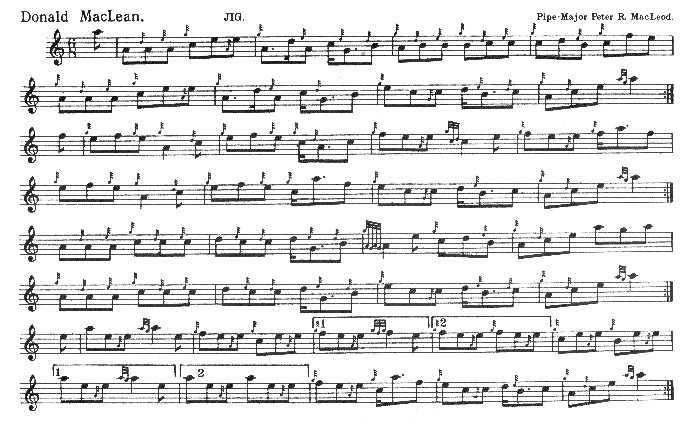
In his letter John comments on the high pitch of chanters around that time (70s – 80s). There had been an increase no doubt. It made the tuning of high G very difficult. This increase in pitch was more noticeable to older hands who had been raised on Hardie and Sinclair chanters in the immediate post war period and into the 50s and 60s.
Sound today seems to have levelled out, maybe even homogenised, as Ian McLellan lamented a couple of weeks ago after the Northern Meeting. Thankfully the stridency that John mentions has gone and there are very many sweet bagpipes on the boards these days.
As to ‘A Lullaby for Iain’, here is the original in John’s own handwriting and completed in May 1984: 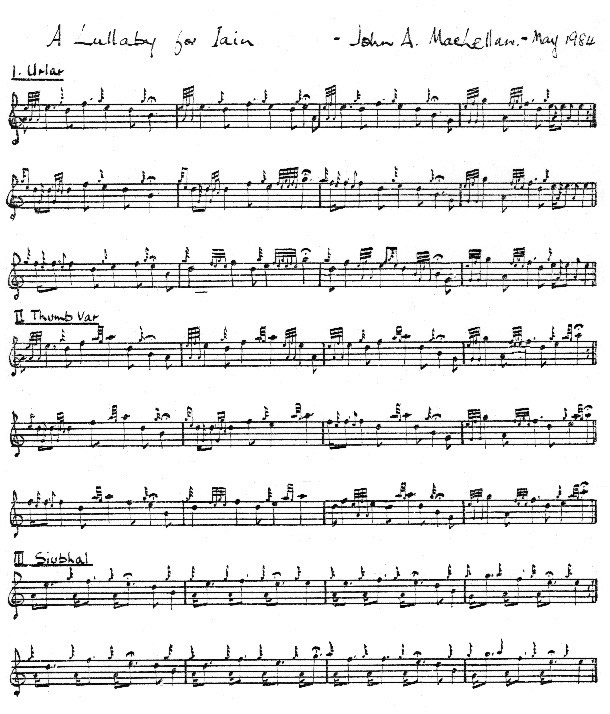
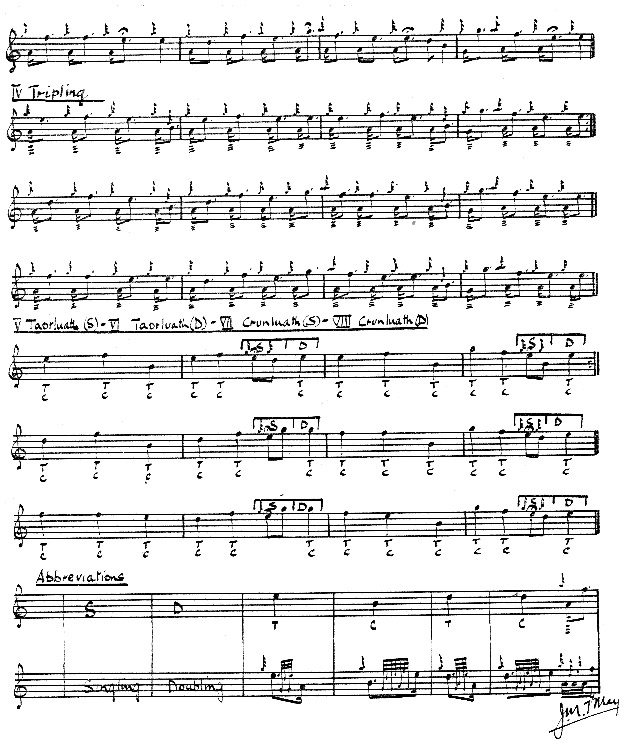
It is a fine tune and one those interested will enjoy playing. I may have a recording of it somewhere. Click title to download A Lullaby for Iain
[wds id=”3″]
















Recent Comments